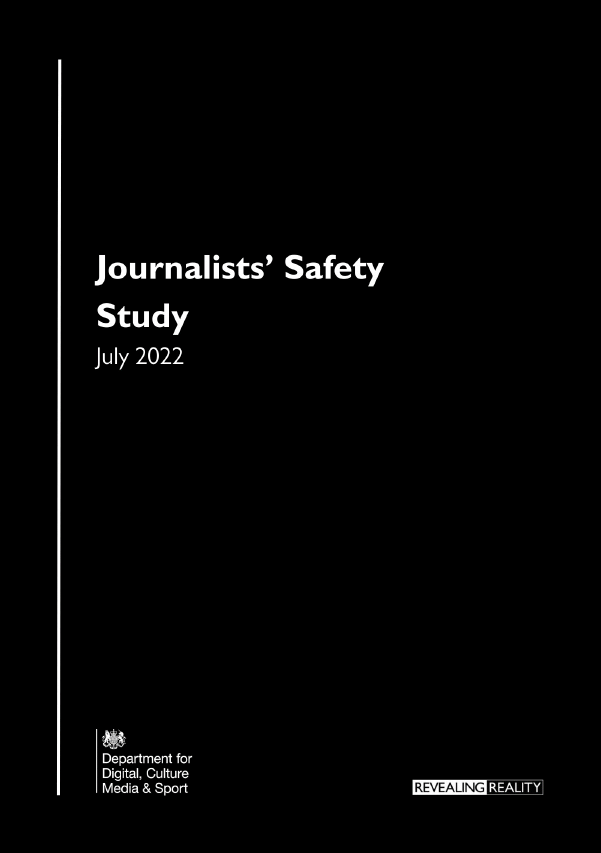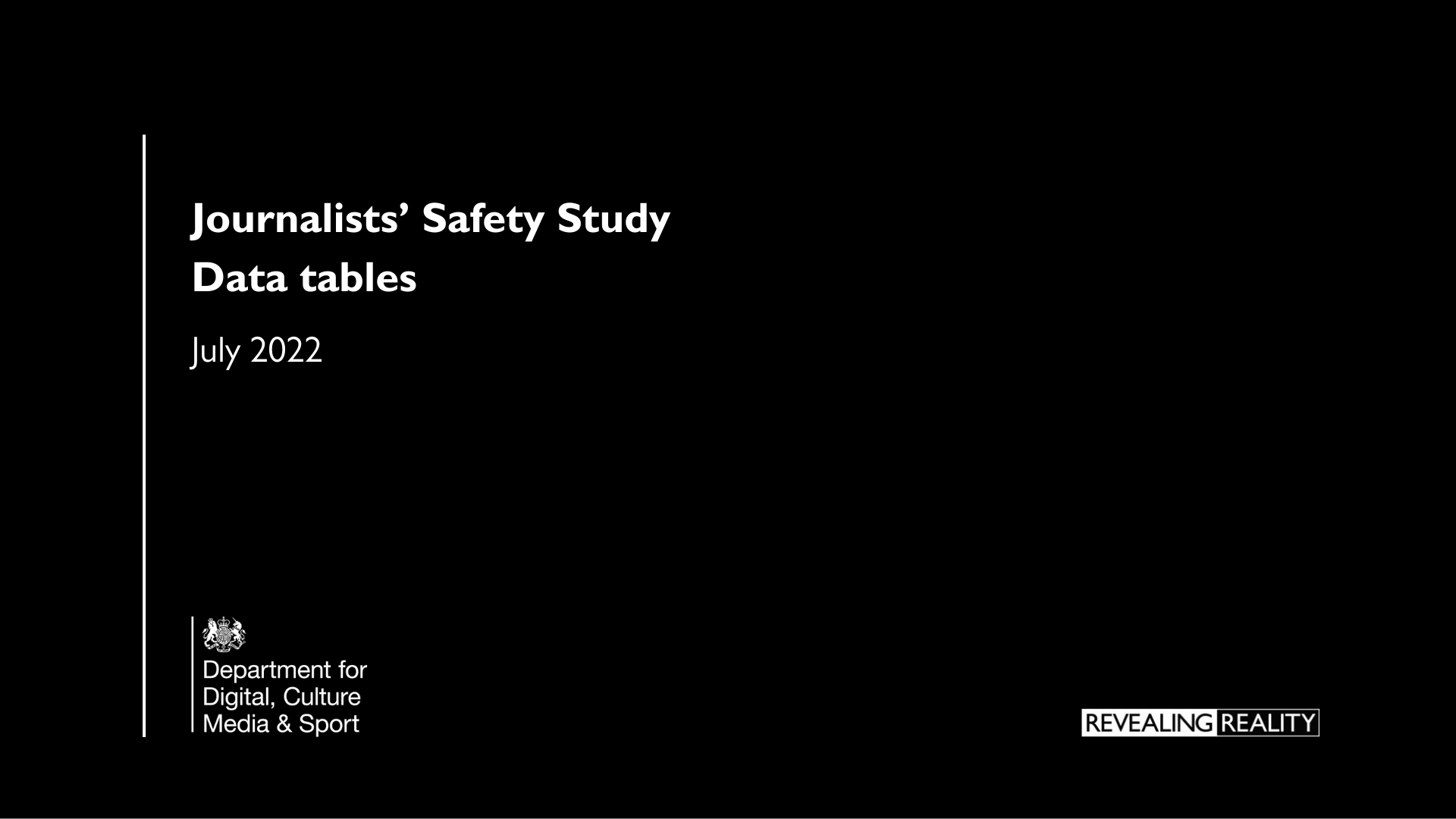Designing a research project to better understand the nature of abuse, threats and harm to journalists in the UK required careful thought – and was just the kind of research design challenge we relish.
Commissioned by the DCMS, we needed to measure the prevalence of threats, abuse and violence, examine journalists’ perceptions of safety, explore how these affected their professional and personal lives, and investigate what support they had, what they used, and what they wanted.
We took a mixed-methods approach, with the eventual findings drawn from a survey of more than 500 journalists working in the UK, plus in-depth interviews with 10 journalists and two media outlets.
It was essential that the questionnaire was designed so that it accurately captured the wide range of people’s experiences, both on and offline, and that it minimised the likelihood that the questions – or their answers – could be open to interpretation – difficult given how subjective and emotive the topic could be.
It was also important to capture journalists’ perceptions of abuse, harm, and safety not only as they applied directly to them but also more generally, as both personal experience and wider perception can have a bearing on behaviour. We needed to understand not only how abuse and harm affect journalists’ physical and emotional wellbeing, but also how they may deter people from joining the profession, or have a ‘chilling effect’ on free speech as journalists censor their work to avoid them.
The survey also captured information about personal and professional characteristics so we could explore patterns in the data and identify factors that correlate with ‘abuse’ and its impacts.
We made clear that the survey was relevant to all journalists working in the UK, regardless of their personal experiences, and made efforts to encourage journalists who had experienced no abuse or harm to complete the survey as well as those who had. Nonetheless it is reasonable to assume that journalists who felt they had experienced abuse in some form may have felt greater motivation to complete the survey, introducing a sampling bias which should be taken into account when considering the research findings.
We did follow-up in-depth interviews with 10 journalists and two media outlets to explore specific incidents of abuse and the kinds of support structures journalists were able to access. These interviews provided important additional context, nuance and relatable examples of the many topics explored in the survey. The fieldwork took place in the first half of 2022.
Key findings
Experience of abuse
Three-quarters (76%) of the journalists surveyed reported they had experienced some form of ‘abuse’ in the previous 12 months. This included a small number reporting physical harm or threats, and larger numbers saying they had received threats or abuse online, which ranged from insults to wishes of harm and incited pile-ons.
Perceptions of abuse
Less than half (47%) of the journalists said they felt safe operating as a journalist in the UK today. Half (50%) said journalists ‘had to accept’ they would receive some level of abuse or harassment online over their work and around a quarter (27%) said they did not feel confident they could create and share work without fear of physical harm.
Impact of abuse
Around nine out of 10 journalists surveyed (89%) said their experience of abuse or their perceptions of its likelihood had had an impact on them. These effects ranged from feeling anxious or increasing personal security, to censoring their own content or their promotion of it. Some said they had considered changing their role or leaving the profession.
Support for journalists facing abuse
Just under half (46%) of journalists who said they’d experienced abuse in the preceding 12 months reported that they had sought support from sources such as their employer, the online platform where it had occurred or the police. When asked, many were not clear what more could be done to protect them from abuse or harm.
Opportunities
The scale and impact of abuse revealed by this research raises questions about how and where interventions could or should be made to reduce the overall impact of abuse on journalists and journalism.
The aim is to strike a balance so that journalists can do their jobs without fear or favour and are protected from abuse and threats to their safety, while ensuring that free speech is maintained, journalism can be challenged, and journalists can be held accountable for their work.
There are opportunities to reduce the impact of abuse before and after it happens, by increasing efforts to prevent it happening, raising awareness of and access to appropriate support when it does, and improving the effectiveness of the support that is available.
Click here for the full report and data tables.


